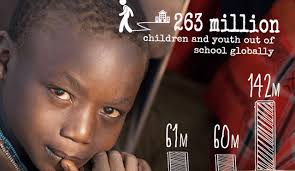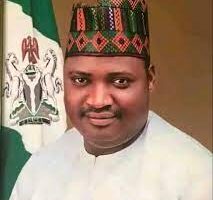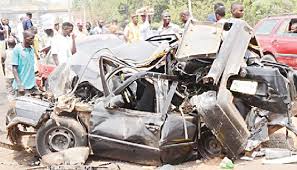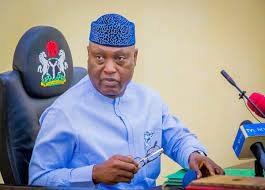In this piece, TOPE SUNDAY writes on the recent statistics indicating that a significant number of children aged 6-15 are out of school across Nigeria.
In what appears as a daunting educational crisis, a significant number of children aged 6-15 are not in school with stark regional disparities that highlight the urgent need for targeted interventions.
According to the data from the National Mass Education Programme Initiative (NMPI) 2022 and other educational reports, northern Nigeria has the highest percentage of out-of-school children.
A breakdown of the statistics shows that Kebbi has 67.6% of out-of-school children; Sokoto: 66.4%; Yobe: 62.9%; Zamfara: 61.3%; Bauchi: 55.7%; Borno: 54.2%; Jigawa: 51.1%; Gombe: 48%; Katsina: 45.9%; Niger: 42.8%; Kano: 39.2%; Taraba: 28.8%; Nasarawa: 25.4%; Plateau: 23.2%; Kwara: 22%; Kaduna: 21.9%; and Adamawa: 21.7%.
Also, Oyo has 20.9%; Ogun: 20.5%; Benue: 18.4%; Ebonyi: 16.7%; Ondo: 13.8%; Osun: 12.8%; FCT: 12.8%; Edo: 11.3%; Akwa Ibom: 10.6%; Kogi: 10.2%; Delta: 9.3%; Rivers: 7.7%; Cross River: 7.6%; Enugu: 7.5%; Bayelsa: 7.4%; Lagos: 6.4%; Abia: 5.6%; Ekiti: 5.1%; Imo: 5.1%; and Anambra: 2.9%
Further breakdowns
According to recent reports, northern states dominate the list of regions with the highest percentages of out-of-school children, highlighting a critical regional disparity that demands immediate attention.
These figures, sourced from the National Mass Education Programme Initiative (NMPI) and corroborated by reports from various educational bodies and media outlets, revealed that the northern region is particularly affected. The high percentages in these states reflect systemic challenges such as poverty, insecurity, and cultural barriers that prevent children from accessing education.
According to the report, Kebbi, Sokoto, Yobe, Zamfara, Bauchi, Borno, Jigawa, Gombe, Katsina, and Niger states are the 10 top states with the highest percentage of out-of-school children; while Anambra, Imo, Ekiti, Abia, and Lagos states have the lower percentage.
Prominent voices against the surge
Prominent Nigerians, including a former emir, and former minister of education, have raised their voices about the development and emphasised the need for immediate and sustained action.
A former Emir of Kano, Muhammadu Sanusi Il, was reportedly quoted to have advocated educational reforms, particularly in the north, and argued that without a solid educational foundation, the region cannot hope to escape the cycle of poverty and underdevelopment.
Also, the deputy secretary-general of the United Nations, Hajia Amina Mohammed, according to reports, highlighted the urgency of addressing this crisis on international platforms; and called for both local and global stakeholders to prioritize education in their development agendas.
On her part, a former Minister of Education and co-founder of the Bring Back Our Girls movement, Dr. Oby Ezekwesili, recently stressed the importance of comprehensive strategies that address not only the educational needs, but also the socio-economic barriers preventing children from attending school.
Others’ reactions
Reacting to the development, a concerned Nigerian, Mr. Ade Odeniyi, is of the opinion that Lagos, going by its economic viability, should not have out-of-school children.
He also questioned the efforts of the governors in raising the educational bar in their various states, noting that the federal government alone cannot shoulder it all.
“Far eastern states and the South-south states are doing well. Lagos is supposed not to have out-of-school children because Lagos schools are almost free and are available with graduate teachers.
“These statistics are as important as what the state governments are doing to help all Nigerians to know children out of- school. But the question is; what programmes do the state governors put in place apart from what the FG is doing?”
Also, a public affairs analyst, Comrade Sunday Alifia, said the data on out-of-school children is a clarion call for urgent action, and advocated strategies that would provide inclusive, quality education that reaches every child, regardless of their geographical location or socio-economic background.
Alifia also called for education reforms that would ensure sustainability and adaptability to local contexts; and asked community leaders and influencers’ engagement to promote the importance of education.
“The data on out-of-school children in Nigeria is a clarion call for urgent action. The government, non-governmental organizations, and international bodies must collaborate effectively. Strategies must be put in place to provide inclusive, quality education that reaches every child, regardless of their geographical location or socio-economic background.
“Educational policies need to be reformed to ensure sustainability and adaptability to local contexts. Community leaders and influencers should be engaged to promote the importance of education, and targeted interventions are necessary to address the unique challenges faced by each state,” he said.
In his article, Out-of-school-children in Nigeria: Matter arising, the deputy registrar, Yaba College of Technology, Lagos, Joe Ejiro, said the issue of out-of-school children in Nigeria is a complex and pressing challenge that required a multi-faceted and coordinated effort from all stakeholders to address.
Ejiro also stressed the need for all children to have access to quality education at all levels, saying that inadequate funding is therefore a key issue that affects the number of out-of-school children in Nigeria.
To this end, he called on the government to implement different education reforms to address the issue of out-of-school children in Nigeria, adding that the implementations of the Universal Basic Education (UBE) programme and the National Commission for Mass Literacy, Adult, and Non-Formal Education are some of such initiatives.
He said, “Funding is pivotal to improving access to education. It is essential to ensure that all students have access to quality education at all levels. However, this becomes a problem when there is inadequate funding for the provision of physical and instructional facilities. The implication of this is, it will lead to declining enrolment of pupils and students.
“Inadequate funding is therefore a key issue that affects the number of out-of-school children in Nigeria. A situation where the government continues to allocate a low percentage of its budget to education will lead to a lack of resources for schools and teachers. This will consequently result in poor quality education and a lack of motivation for children to attend school.
“The government through the implementation of different education reforms has continued to make efforts to address the issue of out-of-school children in Nigeria. Implementations of the Universal Basic Education (UBE) programme and the National Commission for Mass Literacy, Adult, and Non-Formal Education are some of such initiatives.
“However, more needs to be done to ensure that every child in the country has access to quality education. Also, civil society organisations and the international community have critical roles to play in addressing the issue of out-of-school children in Nigeria through working in partnership with the federal, state and local government schools, providing support, resources and advocacy to improve the quality of education for all children.
“The issue of out-of-school children in Nigeria is a complex and pressing challenge that requires a multifaceted and coordinated effort from all stakeholders to address. This includes addressing poverty through targeted interventions, raising awareness about the importance of education, improving infrastructure and security in conflict-affected areas, and increasing funding for education. By working together, government, civil society, and other stakeholders can help ensure that all children in Nigeria have access to quality education and a brighter future.”




